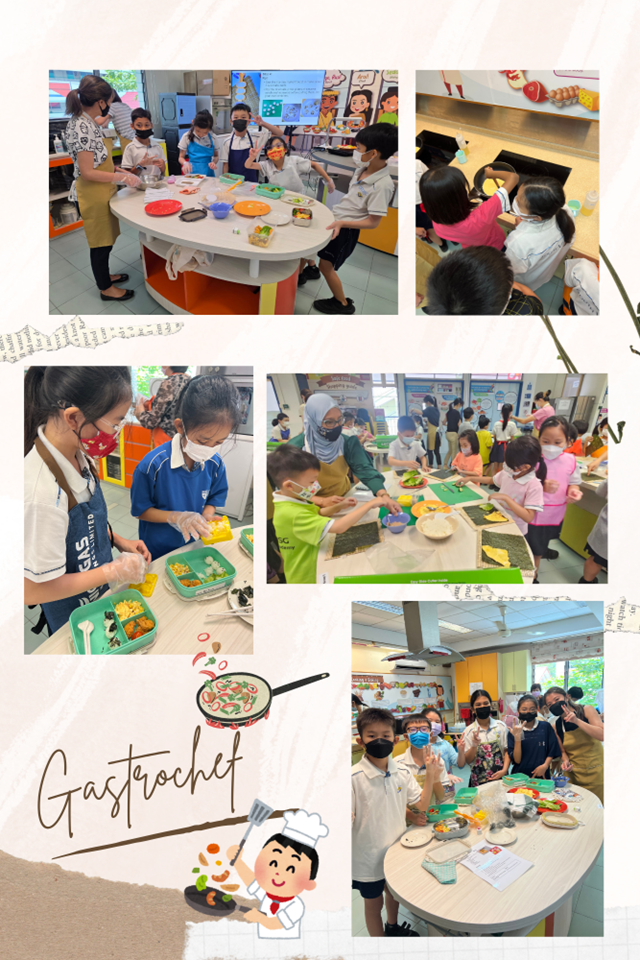GastroChef Programme
The GastroChef Programme supports the development of emerging 21st Century Competencies (e21CC), such as adaptive and inventive thinking, creativity and collaboration. Through hands-on meal preparation, students learn essential cooking skills and gain an appreciation for where food comes from, with a focus on food sustainability. The programme also equips them with basic food handling and hygiene knowledge and exposes them to a variety of cooking methods. As they work together to create their dishes, students build independence, teamwork, and a deeper appreciation for the culinary arts.
Lesson Overview:
The skills imparted will be of increasing difficulty across the levels, to suit the learner and age-appropriateness. The lesson will have a focus on the staple food of Asia, rice, where every level will use this main ingredient to create a dish.
Rice is important for several reasons:
-
Food Security
Staple food for more than half the world’s population, particularly in Asia, providing a major source of calories and nutrition
-
Nutritional Value
Good source of carbohydrates and essential nutrients, making it a vital component of a balanced diet
-
Economic Importance
Rice cultivation supports the livelihoods of millions of people worldwide, from farmers to traders.
-
Cultural Significance
Rice plays a significant role in many cultures and traditions, shaping culinary practices, rituals and social customs. Particularly for Singapore, where the majority of our different races have rice as our staple food everyday!

|
Level |
Dishes |
Culinary Skills |
|
P1 |
One-Pot Rice |
|
|
P2 |
Sushi |
|
|
P3 |
Porridge |
|
|
P4 |
Bento Box |
|
|
P5 |
Rice noodles |
|
|
P6 |
Pineapple fried rice |
|
Students’ lived experiences include:
-
Nutrition & Sustainability Education
The lesson covers three important aspects of cooking kitchen safety, cooking terminology, caloric intake/energy balance and reading food labels. The sustainability elements of the food are covered and discussed in the classroom.
-
Cooking
The students work in groups with the help of parent volunteers. The health content, cultural elements and benefits of ingredients are discussed prior to cooking.
-
Food sampling
Students are able to taste the food that they prepared and are encouraged to take home a portion. They are able to assess their ability in cooking and areas that they are able to improve on.
-
Cleaning Up
Clean-up is as much a part of the cooking process as meal preparation and is important to include students. Students learn how to work in a group with special tasks given to respective individuals so that they can contribute to the group.
-
Reflection
At the end of the lesson, students reflect on the skills, experiences and how they have applied the Growth Mindset and Executive Functioning skills.
Page last updated: 3 June 2025

